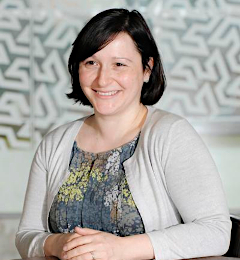Single or deprived bowel cancer patients have double the chance of ‘struggling to cope’ with the disease

Bowel cancer patients who are single or live in deprived areas are twice as likely to struggle to cope with their disease compared to those in a relationship or from wealthy areas, according to new research by the University of Southampton and Macmillan Cancer Support.
The study, published in the Journal of Cancer Survivorship, found that:
Bowel cancer patients living in the most deprived areas are twice as likely to have little or no confidence in managing their cancer (low ‘self-efficacy’) compared to those living in the most affluent areas (12 per cent vs six per cent).
Patients who are single are twice as likely to have little or no confidence compared to those who are married or living with a partner (13 per cent vs six per cent).
Having little or no confidence in managing cancer could include feeling unable to stop pain or fatigue associated with their cancer from interfering with their everyday lives.
Macmillan and the University of Southampton are calling for better long-term support for cancer patients so they can manage their cancer and have a good quality of life. This should include more rigorous assessments of people’s emotional needs at the point of diagnosis and after treatment, to enable doctors and nurses to identify those who lack confidence and ensure they get the support they need.
The Colorectal Wellbeing (CREW) study is following 1,000 people with bowel cancer for five years after surgery and is the largest study of its kind. It found that overall, around one in 10 people (9%) with bowel cancer had little or no confidence in managing their illness when they were diagnosed. This persisted for at least two years afterwards.
Previous research from the CREW study has shown that bowel cancer patients with low confidence before treatment are around 50% more likely to have poor health in the following two years, compared with those with high levels of confidence. This could include problems with pain, walking around and washing and dressing themselves.
Rita Jackson, 70, from East Yorkshire is a widow and was diagnosed with bowel cancer in 2014. She says:
“I struggled to support my late husband with the side effects of his cancer. It was a terrible experience, so when I was diagnosed with cancer I refused to have chemotherapy. I knew that as someone who was on my own, I wouldn’t have the confidence to deal with problems linked to the treatment like pain and fatigue. My two sons are many miles away so there is no one close enough to give me the care and support I desperately need.”
Dr Lynn Calman, Senior Research Fellow in the Macmillan Survivorship Research Group at the University of Southampton, which manages the CREW study, said:
“Our study has shown confidence to manage illness is an important factor in the recovery process and it should not be ignored. Exploring areas where people feel less confident to manage is key if we are to help people through their cancer treatment and beyond. By considering factors such as a where people live or their marital status, we will be able to ensure people who could be vulnerable through their treatment and recovery are given the support and guidance they need. More needs to be done to identify and help people who are struggling in the months and years following cancer treatment.”
Dany Bell, Specialist Adviser in Treatment and Recovery for Macmillan Cancer Support, said:
“Your chance of coping with cancer should not be dictated by where you live or your relationship status. It is deeply worrying that so many people with bowel cancer are lacking the confidence to cope with pain or fatigue. It’s even more concerning that this affects so many of those who are single or from a poor area as we know they are already more likely to lack the support they need. Doctors, nurses, NHS England and the Government must ensure cancer patients get help after treatment. Doctors and nurses can do this by working with the patient on a ‘recovery package’ – a plan of care which identifies what kind of help they might need after treatment. This could include arranging access to support such as counselling or physiotherapy. We’d urge healthcare professionals or patients needing more information to get in touch with Macmillan.”
Macmillan Cancer Support provides emotional, practical and financial support to people who have been affected by all types of cancer. This includes a telephone helpline staffed by nurses and an online community where other people in the same situation can share their advice and offer support. It wants to encourage anyone with cancer who is lacking social support or experiencing depression and anxiety to get in touch. Visit macmillan.org.uk or call 0808 808 00 00.
For further information please contact:
Catherine Jones, Senior Media and PR Officer, Macmillan Cancer Support
Tel: 020 7091 2453 (out of hours 07801 307068)
cjones@macmillan.org.uk
